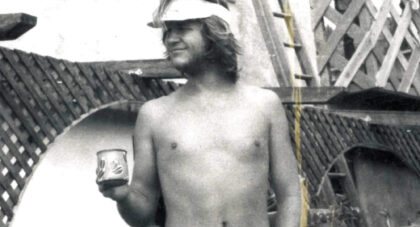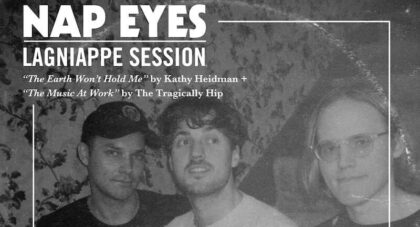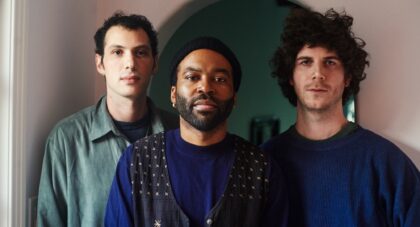In December, 1994, Alex Chilton, Ben Vaughn, and Alan Vega walked into Dessau Studio in Manhattan.
They had only the vaguest idea of what might happen. There was a basic premise, that friends Vaughn and Chilton were going to “play the blues” with Vega, visual artist and frontman of the avant-garde electronic duo Suicide, but beyond that, nothing.
Chilton had just finished a series of shows with his beloved reunited band Big Star; Vaughn, who’d cut his teeth in the roots scene and working with maverick country musician Charlie Feathers, had recently appeared alongside Mudhoney, Luna, the Flaming Lips, the Gories, Codeine, and others on a tribute comp to Vega and Suicide, Invitation to Suicide. The duo was eager to work with Vega, and excited by the prospect of pure creative deconstruction.
What they recorded over two frenzied nights was released in 1996 as Cubist Blues on Henry Rollins’ 2.13.61 label. The base elements were simple: guitar, synth, piano, skittering drum machines, some bass, and live drum kit, undulating under Vega’s reverb cloaked rockabilly incantations. The record was released and made some waves in Europe, but was virtually ignored in the U.S. It quickly fell out of print. But for those who caught on, who heard in the album’s grooves a wild, unrestrained fervor, more spiritually connected to free jazz than alternative or indie rock, Cubist Blues was a treasure. Weird and feral. Oozing. “Liquid,” Vaughn calls it, over the phone from the Mojave Desert, discussing the late 2015 re-release of the album by boutique label Light in the Attic.
“Alan insisted we had no expectations going in,” Vaughn says. The approach – loose, unplanned, almost entirely improvised –was new to him. “He didn’t want to have any discussions prior to going in. He was excited when Alex joined in, but he didn’t want to know anything beyond that. As a matter of fact, telling him that Alex was coming with me almost ruined everything for him. It was one less surprise he would encounter,” Vaughn says. “He was really adamant...really aggressive about not setting up any groundwork that might make anyone comfortable enough to phone it in.”
You can hear the spirit of those evenings in Vega’s cackles, shushes, and barks in album opener “Fat City,” in the limber New Orleans strut of “Lover of Love,” in the pulsing electro-blues of “The Werewolf,” and the spooky, soul rattling gospel of “Come On Lord.” To unbelievers, these songs might sound nonsensical, half-baked, or maniacal. To the converted, they are swampy hymns of devotion from the farthest fringes.
Alan Vega & Ben Vaughn :: Fat City
Listening to the album nearly 20 years after its release, Vega recognizes a special kind of magic in it. “It could it have been a terrible thing, something we finished and said, ‘That’s that,’” Vega says over the phone from his apartment in New York. In 2012, he suffered a heart attack and a stroke, which affected his speaking, but not his verve. His speech is blurred, but perfectly lucid. “But we kept going, because it sounded great,” he says of the the spontaneous recording session.
Only the good shit. Aquarium Drunkard is powered by its patrons. Keep the servers humming and help us continue doing it by pledging your support.
To continue reading, become a member or log in.


